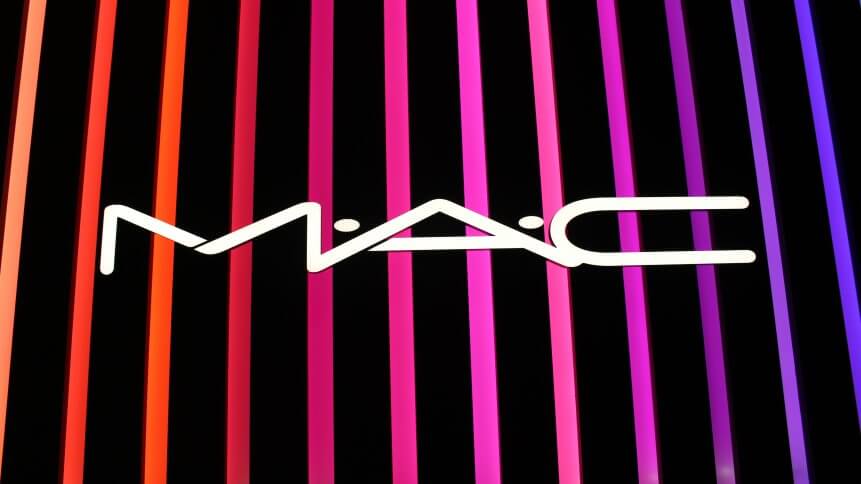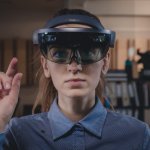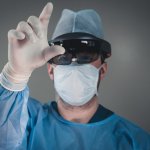Is the beauty industry leading with AR experiences?

- Immersive technology is set to bolster the online shopping experience
- Innovations such as skin analysis tools and virtual ‘try-on’ apps are emerging in the beauty sector
Because of lockdown measures, e-commerce globally has seen a surge in demand. That’s been a big win for some.
For retailer’s with an offline presence, shifting resources into their online channels has helped to keep business flowing despite supply chain complications and a backlog of customer service work layering on huge pressures.
Online sales are all well and good, but they don’t provide the unique in-store experience that effective physical retailers work hard to build, in order to keep customers engaged with their brands products and ultimately keep them coming back time after time.
Flash offers, free delivery and online advertising can’t make up for that, and many brands are exploring new avenues in order to keep customers engaged, and to offer a similarly unique experience that not many of their rivals can offer.
The health and beauty industry is one that’s by its nature, very tactile – consumers want to experiment and get hands-on with a wide range of products, get personal advice from salespeople and see and see items up close. None of this has been possible amid the pandemic.
But that’s driven many in the industry to explore how technologies like AR can fill the gap without the need for customers to leave their homes.
Cosmetics giant MAC introduced a Virtual Try-On feature in partnership with YouCam, allowing customers to ‘try on’ various products via pictures and live videos, before making a purchase.
The realistic simulations can be tested on various skin tones, effectively giving users a fully-personalized service.

Source: MAC
While the beauty and cosmetics industry is evergreen, “it’s the digital-first brands that are best positioned to win in this new environment, which requires us to find new ways to virtually connect with consumers while they are socially distancing at home,” Ukonwa Ojo, MAC Cosmetics global CMO and SVP said.
In an interview with LiveMint, L’Oreal India managing director, Amit Jain, said that as a result of the market impact and changing consumer habits of the pandemic, the firm’s CEO had set a global mission for the brand to “evolve from a beauty to a beauty technology company.”
“We are working with platforms to get consumers to interact with our brands in what’s going to be a low-touch economy. You make sure that they get a similar experience of virtual trials. The low-touch part of it is going to be about VR and AR experiences for consumers that will pick up,” he said.
Cosmetics brand Avon, whose business model is built on in-person visits and social connections, has embraced AR. The technology allows its representatives to continue consulting and selling with customers in a new interactive way, while safely social distancing.
“[…] it’s a huge selling tool for our Representatives and something our customers have been asking for,” said Mary Cooney, Avon VP of digital.
Of course, the advantages of AR in the health and beauty will extend beyond the pandemic. Not only will consumers be accustomed to online shopping – and ready to explore innovative new approaches – the technology allows customers to try extensive ranges of products at little cost to the retailer, from the comfort and privacy of their own home.
There are plenty of apps that offer this kind of shopping experience today, and the technology is constantly advancing, creating more lifelike AR experiences and giving customers more confidence in their buying decisions.
One company developing this kind of tool is Ministry XR. TechHQ recently spoke to the firm’s VP XR experience design, Kimberley Yap, on how it is building unique and engaging brand experiences through XR.
Ministry XR recently teamed up with Malaysian skincare brand Nutox to create a ‘skin analysis tools’ powered by deep learning and computer vision, in order to give customers a hyper-personalized experience when shopping for skincare goods – something that would be very tricky to buy without trying on samples in-store.
The tool is made available to “anyone with a smartphone to analyze their skin and identify major skin concerns such as wrinkles, hyperpigmentation, texture, and dullness,” Yap said.
“The journey is simple. Take a selfie with the app, get your skin analysis results, explore recommended products based on their skin condition, and order them.”
The seamless experience is poised to help consumers keep track of their self-care habits and track for skin improvement over time.
Nutox is not only able to engage with their consumers, the deployment of the AR tool adds value to the brand and, driving ongoing conversion and sales, with consumers viewing it as ‘more’ than just a skincare brand.
In what is now becoming an ‘experience economy’, where people are spending less on things and investing more on things to do, gaining experiences, the marketing of goods and services with AR will gather pace.
YOU MIGHT LIKE

Why businesses need to prepare for a mixed reality world
Brands leveraging AR in this way are increasingly looking to create “meaningful experiences”, which can translate to action and eventually conversion. But on that journey, the key is building user experience where value leads to a greater affinity with a brand and ongoing loyalty.
“From virtually trying on make-up looks to evidence-based skin analysis, AR and other disruptive technologies are changing the way consumers discover, experience and connect with health and beauty brands,” said Yap.
“We’ve all heard the same old benefits of XR ad nauseam — intuitive, engaging, borderless, cost-saving.
“But the core reason lies in how XR impacts the user experience.”









